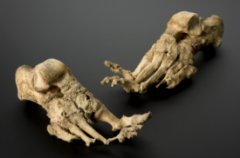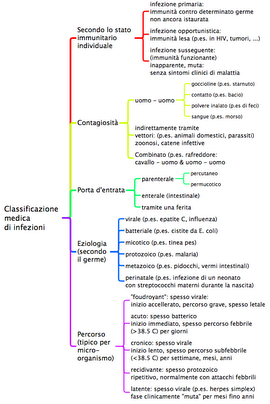Disease epidemics
 'The ideal way to get rid of any infectious disease would be to shoot instantly every person who comes down with it.' H L Mencken
'The ideal way to get rid of any infectious disease would be to shoot instantly every person who comes down with it.' H L Mencken
Humanity and disease share a long and eventful history. As we emerged and evolved, so did the diseases that blight our lives. Diseases exist in the fossil record, but our ancestors were actually less exposed to them. This changed around 10, 000 years ago when they began living in more settled agriculturally based communities. Animals were a major part of this revolution. But settlement brought disease and epidemics. Close contact, often in overcrowded and unsanitary conditions, allowed some animal diseases to jump species and become deadly human infections.
What did early people think about disease?
Like their prehistoric ancestors, most Ancient Egyptians blamed evil spirits or angry gods. Some Egyptian doctors had other ideas. They blamed blocked channels within the body, a theory that has echoes in other medical traditions, particularly Traditional Chinese Medicine. In Ancient Greece Hippocrates proposed a theory about the body which centred on humours, a notion which has parallels elsewhere, most obviously in Ayurvedic medicine. This Greek medical philosophy eventually took root among Greece’s conquerors in Rome, from where the writings of Galen resonated across much of the world and remained influential for hundreds of years.
 The decline of the Roman Empire and rise of the Islamic Empire
The decline of the Roman Empire and rise of the Islamic Empire
As the East Roman Empire declined, an Islamic Empire expanded westwards. Muslim scholars collected, translated and supplemented classical Greek works as well as texts from India and Northern Africa. To this body of learning they added their own innovative work, with physicians al-Razi and Ibn Sina among the most prolific and influential scholars of this period. These texts were archived at the House of Wisdom in Baghdad and other centres of study. Emerging from the early medieval period, Europe remained ignorant of much of this knowledge.
Galen and the spread of disease
Galen coined the word ‘plague’ to describe a quickly spreading fatal disease. He had lived through the Antonine Plague - one of the great epidemics of the ancient world. The Black Death that devastated Europe in the 1340s was just that and more, the most deadly pandemic in recorded history. As a recovering Europe enjoyed the cultural Renaissance of the following century, the ancient texts were rediscovered and newer texts from the Islamic world became accessible. But the older texts were not simply revered, they were also questioned.


 An infection is the invasion of body tissues by disease-causing microorganisms, their multiplication and the reaction of body tissues to these microorganisms and the toxins that they produce. Infections are caused by microorganisms such as viruses, prions, bacteria, and viroids, though larger organisms like macroparasites and fungi can also...
An infection is the invasion of body tissues by disease-causing microorganisms, their multiplication and the reaction of body tissues to these microorganisms and the toxins that they produce. Infections are caused by microorganisms such as viruses, prions, bacteria, and viroids, though larger organisms like macroparasites and fungi can also...